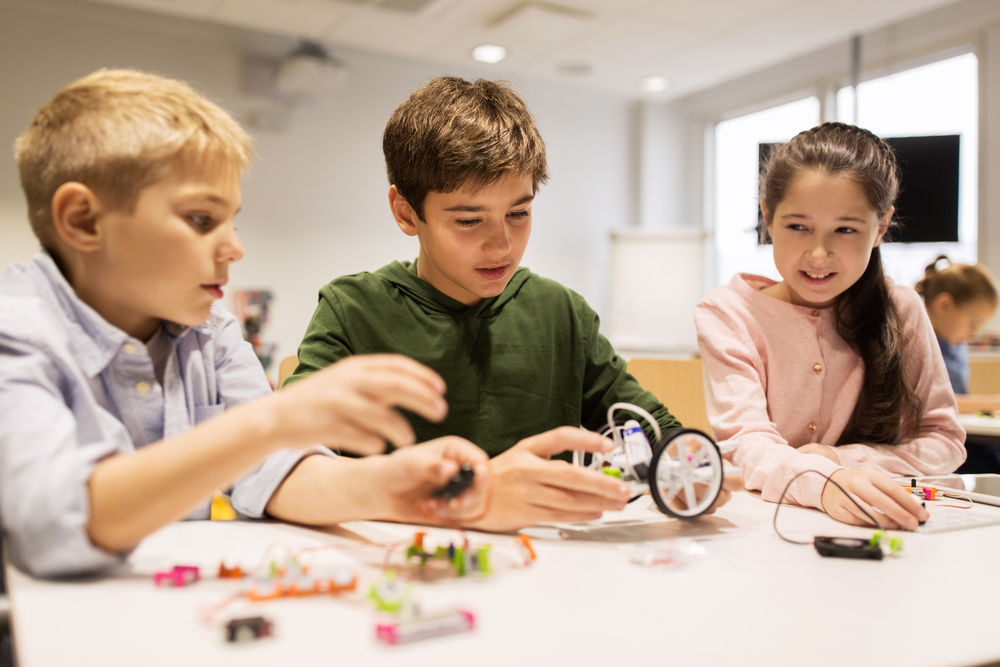Visual recognition Social Studies Worksheets for Ages 5-7
6 filtered results
-
From - To
Explore our engaging Visual Recognition Social Studies Worksheets designed specifically for children ages 5-7! These vibrant and interactive worksheets help young learners develop essential visual recognition skills while exploring geographic, cultural, and social concepts. Each activity is carefully crafted to stimulate critical thinking and enhance understanding by connecting visual cues to real-world situations. Perfect for homeschooling or classroom use, our worksheets encourage kids to identify important symbols, landmarks, and community helpers, reinforcing their understanding of the world around them. Download now to foster curiosity and creativity in your child's social studies journey! Ideal for educators and parents alike.
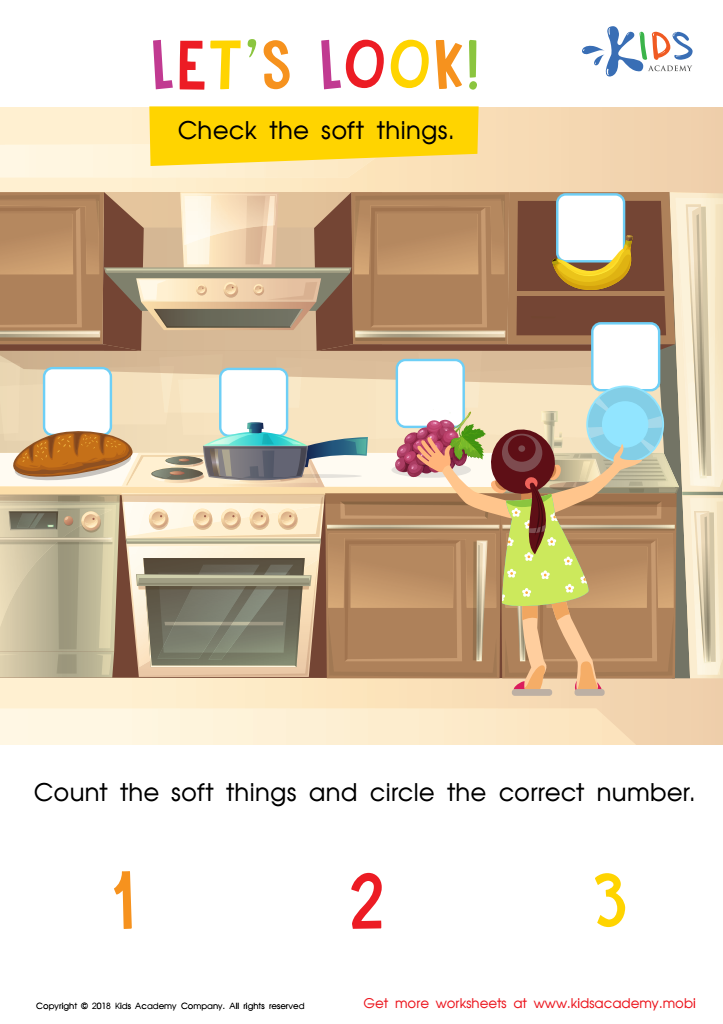

Let's Look! Assessment Worksheet
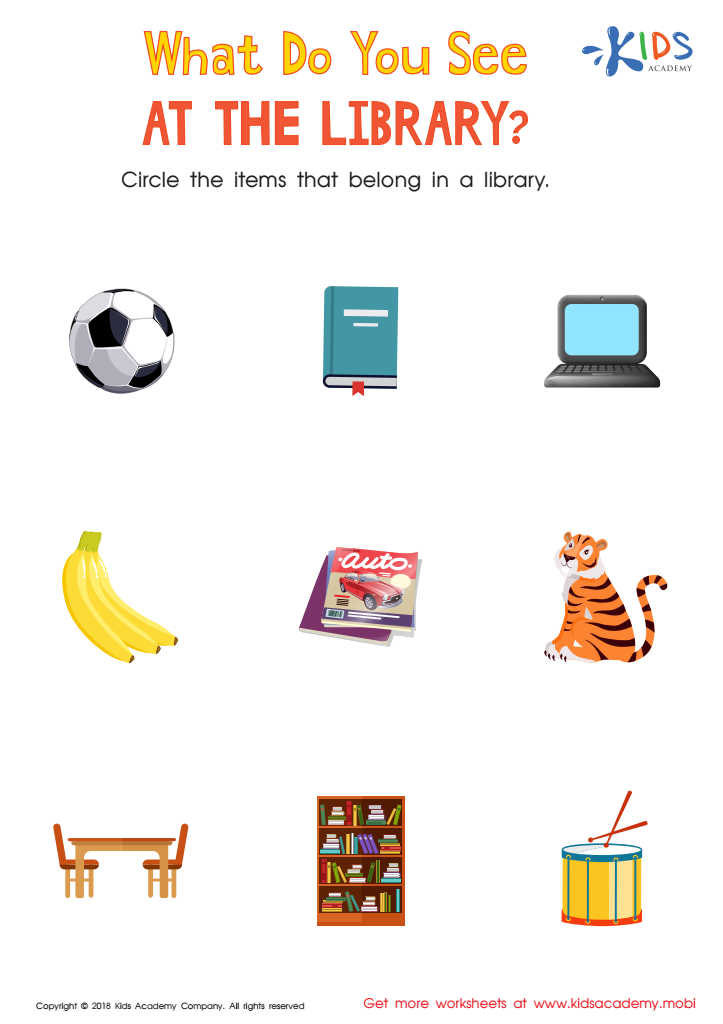

What Do you See at the Library? Worksheet
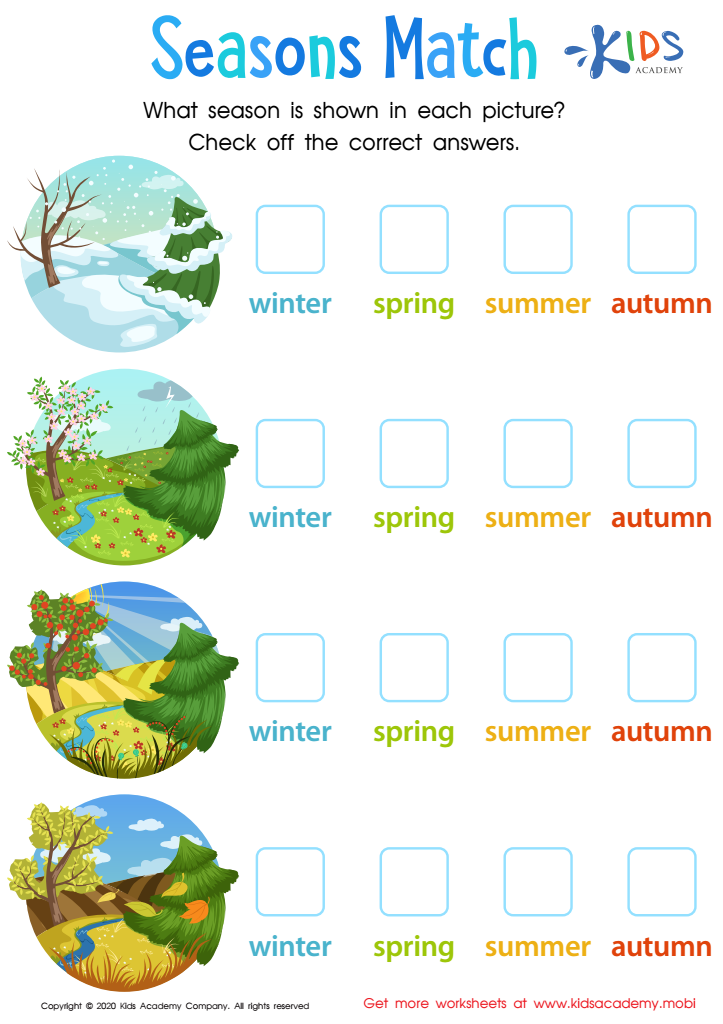

Seasons Match Worksheet
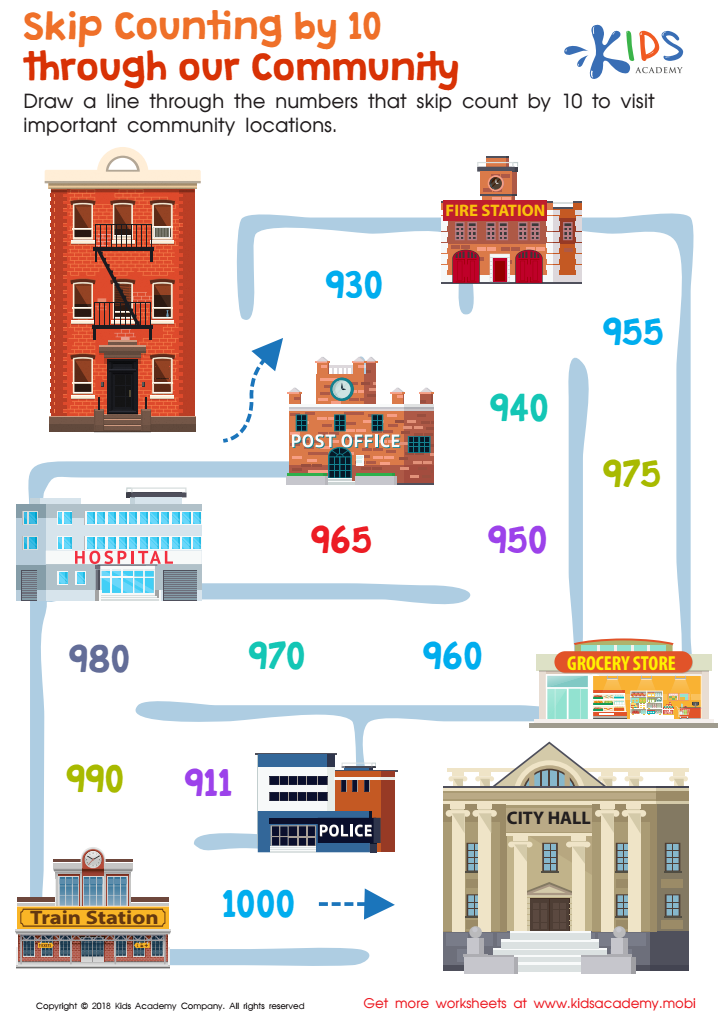

Skip Counting by 10 Through Our Community Worksheet
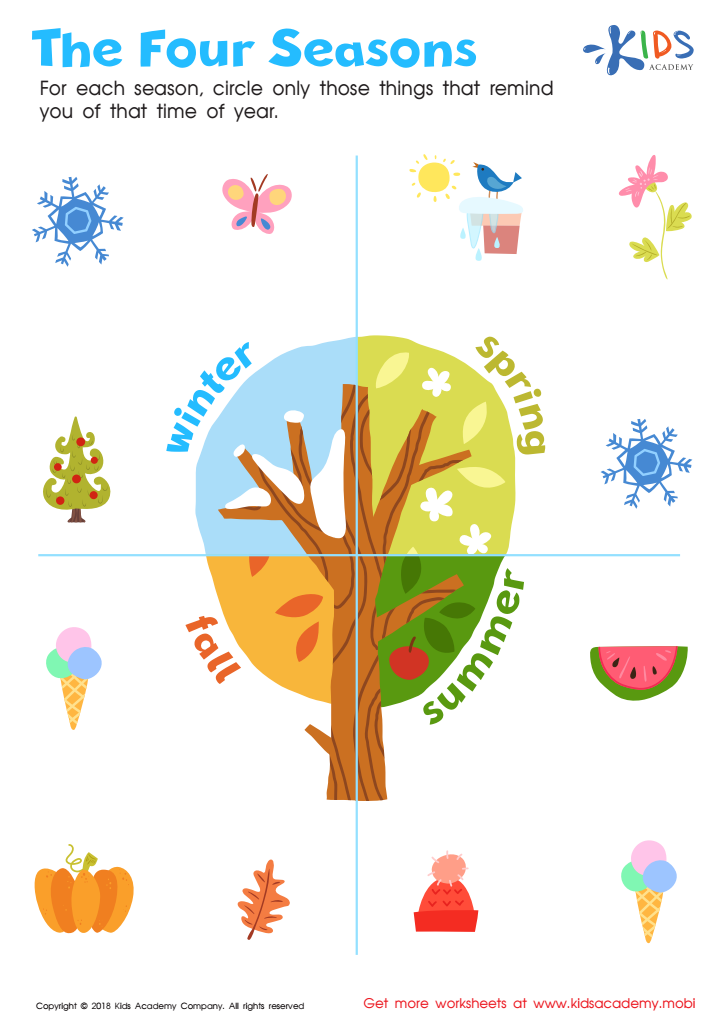

The Four Seasons Worksheet
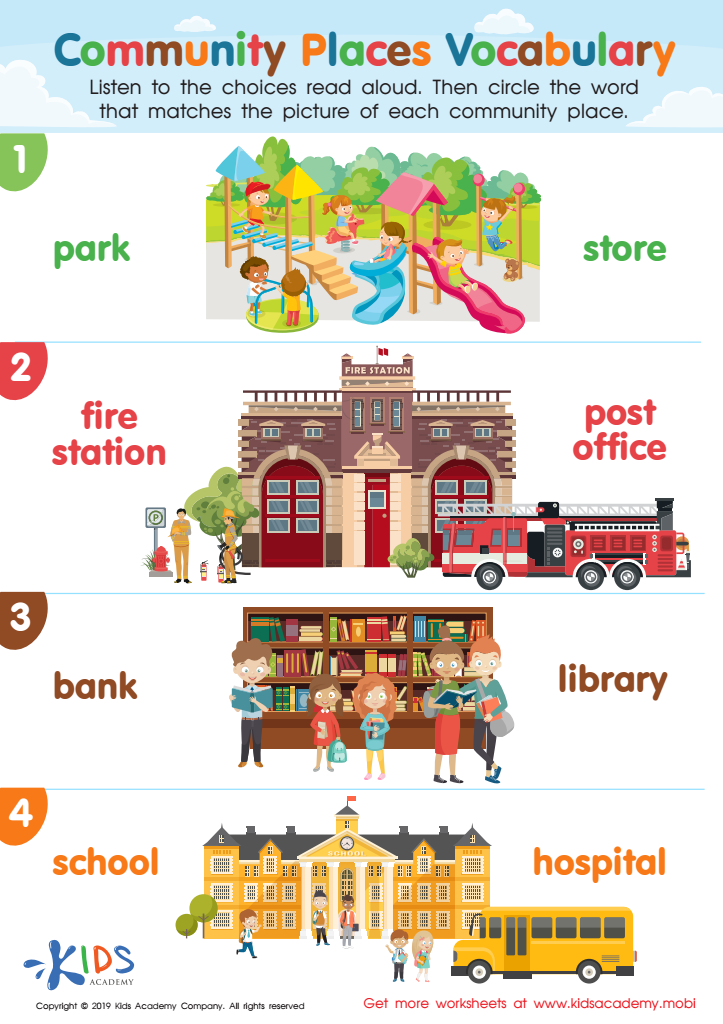

Community Places Vocabulary Worksheet
Visual recognition in Social Studies is crucial for children ages 5-7 as it lays the foundation for their understanding of the world around them. In early education, children learn to identify and interpret images, symbols, and maps, which enhances their comprehension of cultures, history, and social interactions. This skill helps them connect visual elements to concepts such as community, geography, and citizenship, making learning more relatable and engaging.
Parents and teachers should care about visual recognition because it fosters critical thinking and analytical skills. When children analyze visuals, they learn to make associations, draw conclusions, and gain insights into societal norms and values. This builds their ability to empathize and engage with diverse perspectives, promoting inclusivity and respect.
Moreover, visual recognition supports language development. Children often describe what they see, enhancing vocabulary and narrative skills. Engaging with visual content prepares them for future academic success across subjects, as these skills transfer to reading comprehension and mathematics.
Ultimately, prioritizing visual recognition in Social Studies empowers young learners to approach the world with curiosity, understanding, and confidence, nurturing informed and active citizenship as they grow. This is essential not just for academic development, but for fostering a well-rounded upbringing.
 Assign to My Students
Assign to My Students







